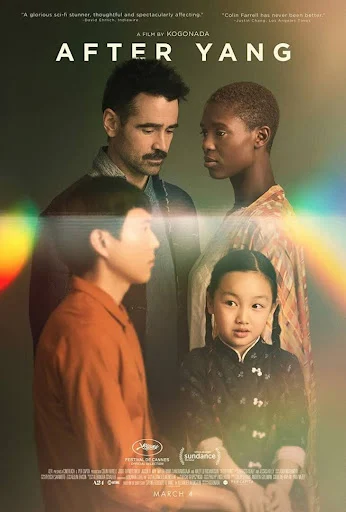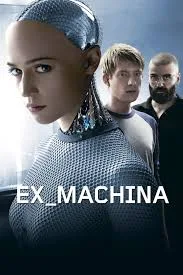3 Body Problem (Miniseries; Season 1, 8 episodes )
Adapted from the Hugo Award-winning novel by Liu Cixin
.jpg) There is an episode in the original Twilight Zone series titled "Where is Everybody?" in which a person wanders around a township with no soul in sight. Enveloped in 'The Great Silence,' he runs around like a headless chicken, looking for any sign of life. That must surely be a veiled reference to Fermi's paradox. With so much wasted space around us and after so many years of searching, why can't we contact any lifeform elsewhere in this widespread Universe? With time, the possibility of the presence of more and more solar systems is being suggested. Surely, someone somewhere must have picked up our radio signals by now. What if they are advanced enough to pick up gestures of friendship. Or maybe they have already made visitations before if one believes the ideas mooted by Erich von Däniken about ancient aliens.
There is an episode in the original Twilight Zone series titled "Where is Everybody?" in which a person wanders around a township with no soul in sight. Enveloped in 'The Great Silence,' he runs around like a headless chicken, looking for any sign of life. That must surely be a veiled reference to Fermi's paradox. With so much wasted space around us and after so many years of searching, why can't we contact any lifeform elsewhere in this widespread Universe? With time, the possibility of the presence of more and more solar systems is being suggested. Surely, someone somewhere must have picked up our radio signals by now. What if they are advanced enough to pick up gestures of friendship. Or maybe they have already made visitations before if one believes the ideas mooted by Erich von Däniken about ancient aliens.
Conversely, if a civilisation is indeed more advanced than us, wouldn't it want to dominate us? Come to think of it, our announcement to the Universe may be counterproductive as it may put us at risk of being run over.
This is exactly what happens in this story. An alien race, the San-Tis, from a distant planet, Trisolaris, in Alpha Centauri, four light years away, are looking for an alternative home. Their planet is unstable, and they are looking for an alternative home. A signal from a Chinese scientist comes in. The Trisolarians grab this opportunity. They send advanced minuscule computer programmes called 'siphons' to Earth through accelerated methods (breaking light barriers) to retard science on Earth while San-Tis conquer our planet. Reaching Earth takes over 400 years because they have not breached the light-speed barrier.
Meanwhile, scientists are committing suicide as science results are going haywire (Science, as they knew, is dead). The gist of the story is trying to save Earth from the inevitable space invasion. In the midst of all that, there is death, murder, love, deceit and friendship.
I do not claim to fully understand the science behind the story. It skips me why the scientists decided to commit suicide, as scientists are generally resilient and have the in-built capacity to resist adversity.
I understand that the 'three-body problem' is a physics/ mechanics conundrum. Predicting the path of two bodies with gravitational pulls towards each other can be done by looking at their trajectory, pulling forces, and a pre-determined point of reference. In a three-body model, the path looks chaotic and appears like they may collide at any time. It is more difficult for scientists to foresee. This is the exact problem San-Tis has. Their three suns (hence the name Trisolaris name for the planet) cross paths, leading to destructive outcomes. There was the need to colonise.
The series is mired with controversy even before its release. Its producer, who helped to bring it to Netflix, died of poisoning in a business dispute. The Chinese Government is not pleased with its altered storyline, choice of casting and the adverse depiction of China. Under the guise of diversity, the Chinese are cast as villains, and the White man comes to the rescue.
(P.S. The novel is the first of a trilogy. Dark Forest and Death End will follow, as this sci-fi has geeks talking.)
(P.P.S. Food for thought: Are our efforts to send probes and time-capsules counterproductive? Like how flaunting our boarding passes online will expose our personal data to prowling eyes and unsavoury characters, will it attract space imperialists?)






















